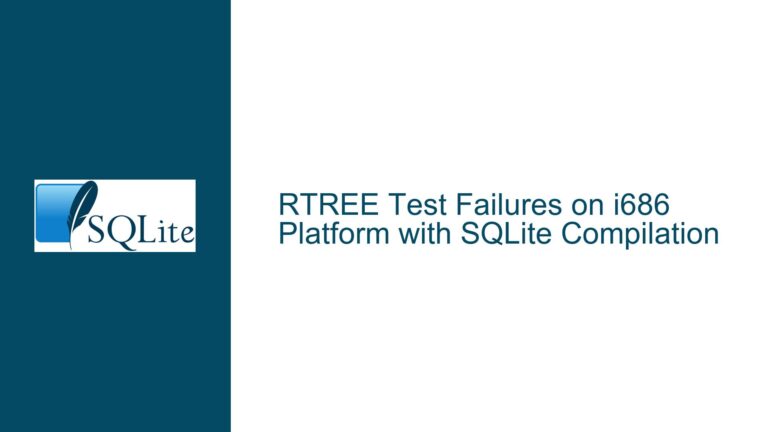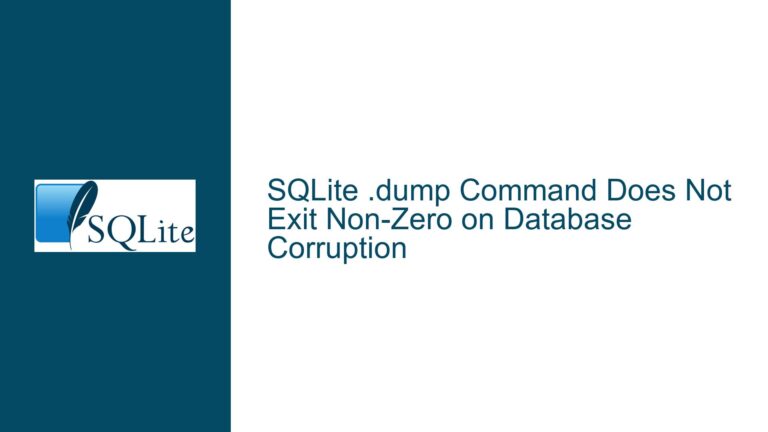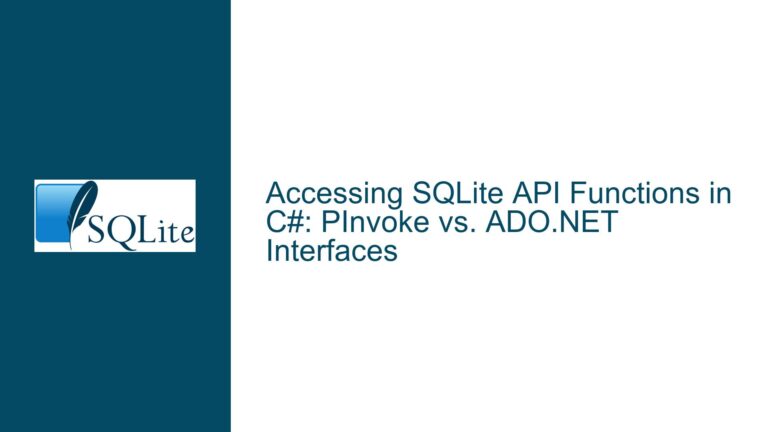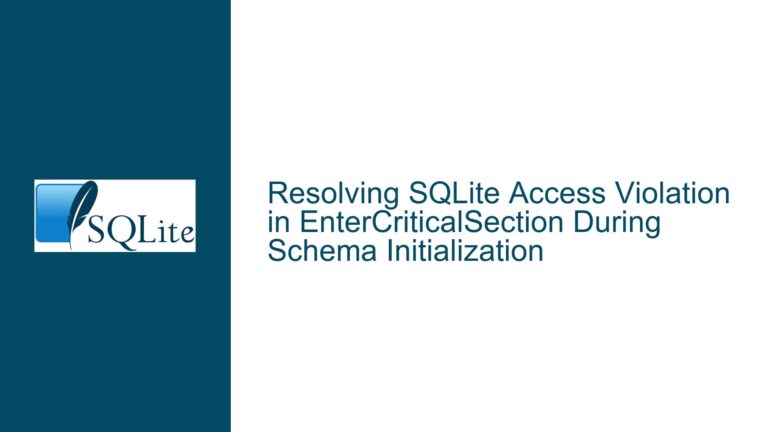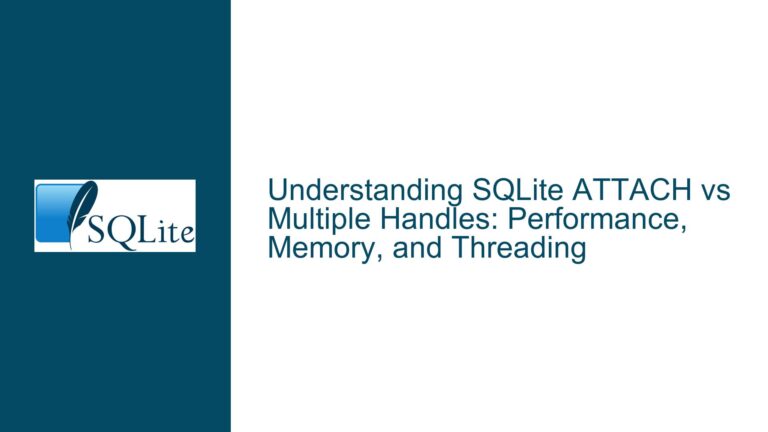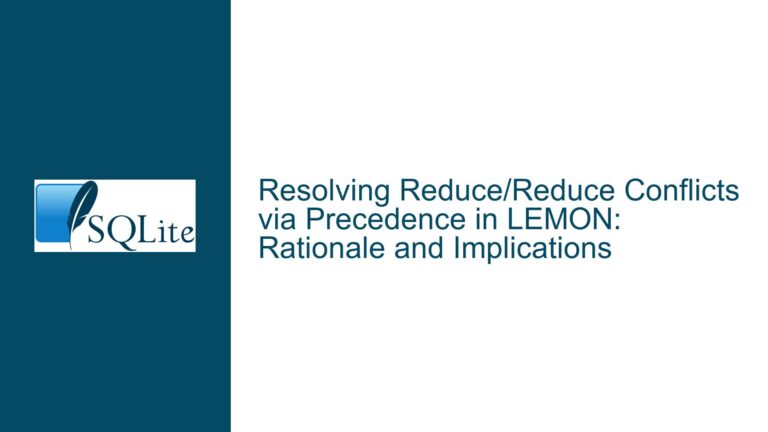RTREE Test Failures on i686 Platform with SQLite Compilation
Issue Overview: RTREE Test Failures on i686 Platform with SQLite Compilation The core issue revolves around the failure of specific RTREE-related tests when SQLite is compiled with the –enable-rtree option on the i686 platform. The tests in question, rtree1-22.0 and rtree1-22.1, exhibit discrepancies between the expected and actual results. Specifically, the expected results are [123]…
